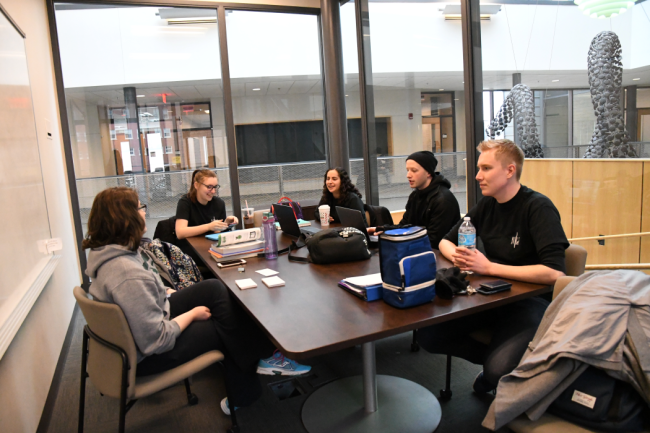You have /5 articles left.
Sign up for a free account or log in.

Youngstown State University’s procurement internship pilot equips students with experiential learning and work experience before graduation.
Youngstown State University
Youngstown State University in Ohio is giving students a new taste of experiential learning and hands-on work experience with its pilot internship program related to contracting and purchasing careers.
The Ohio Procurement Internship Program (OPIP) launched in fall 2022, offering selected students a paid internship with a local company engaged in government contracting. Students will become experts in procurement work and assist Ohio businesses in entering a new market while gaining résumé experience.
What it is: The university’s Ohio Procurement Technical Assistance Center, recently renamed the APEX Accelerator, collaborated with the Ohio Department of Development to create the internship program.
The Ohio Department of Development has offered an internship program focused on product export goals for about eight years, through a partnership with Ohio State University, Cleveland State University, the University of Dayton, Ohio University, Bowling Green State University and Youngstown State University for students and companies aiming to break into new markets.
The procurement program models the export one, but Youngstown is the launch institution for it, explains Rich Delisio, director of the Ohio APEX Accelerator at YSU.
Joey Scott, YSU alumnus and manager of the Ohio APEX Accelerators statewide, completed the export internship program as a student and adapted the model for government contract and procurement work.
How it works: Students apply for the program starting in the fall and complete an interview round before being selected for the program. Most of the students who make up the 14-strong pilot cohort belong to the YSU Williamson College of Business Administration and are juniors or seniors.
All OPIP participants are enrolled in a semester-long, three-credit course taught by Scott that covers “the foreign language of government contracting,” says Scot Loveland, procurement consultant for Ohio APEX Accelerator at YSU. Class materials are adapted from the National Contract Management Association.
After the course, students are hand-placed with an APEX client by Loveland to complete a 12-week internship. Students will complete a weekly report during the summer, documenting the experience.
The host company provides managerial guidance, hands-on work and a wage of at least $17 per hour. The state’s department of development reimburses up to $5,000 of the student’s wages, around 60 percent, alleviating the burden for the host company.
What’s the need: The federal marketplace is “one of the largest marketplaces in the world,” Loveland explains, with the government purchasing around $650 billion of goods and services in the past year.
Despite the opportunities, few companies have the time and energy to engage in the area because government contracting and procurement are complicated.
With the internship, companies “can have a student intern who is knowledgeable in government procurement. It basically asks as a force multiplier for them—it allows them to engage that government marketplace when they don’t have the time and the knowledge personally to do it,” Loveland says.
Students are being prepared to be mini experts in the field, ready to use their classroom knowledge in a practical way for the benefit of the company.
For students, there are around 3,260 private companies in Ohio that engage with federal or state, local and educational (SLED) agencies—or, as Loveland puts it, 3,260 potential employers.
Procurement employers, both on the public and private side, are hiring younger talent with less industry work experience, but this internship gives students a leg up in their applications.
The course and internship provide greater visibility into career opportunities for students interested in the field, Delisio says.
Looking ahead: The pilot program will conclude in August, along with the internships, and then it will be evaluated for its outcomes for students and companies.
In the future, Loveland and Delisio hope to expand their cohort experiences beyond business students to engage STEM students, because there is a growing interest in engineering or IT skills within procurement careers.
The leaders also hope to get more awareness around the program and its benefits for local companies as they look to scale it to a statewide initiate, like the export internship.
If your student success program has a unique feature or twist that you believe is worth modeling, we’d like to know about it. Click here to submit.




